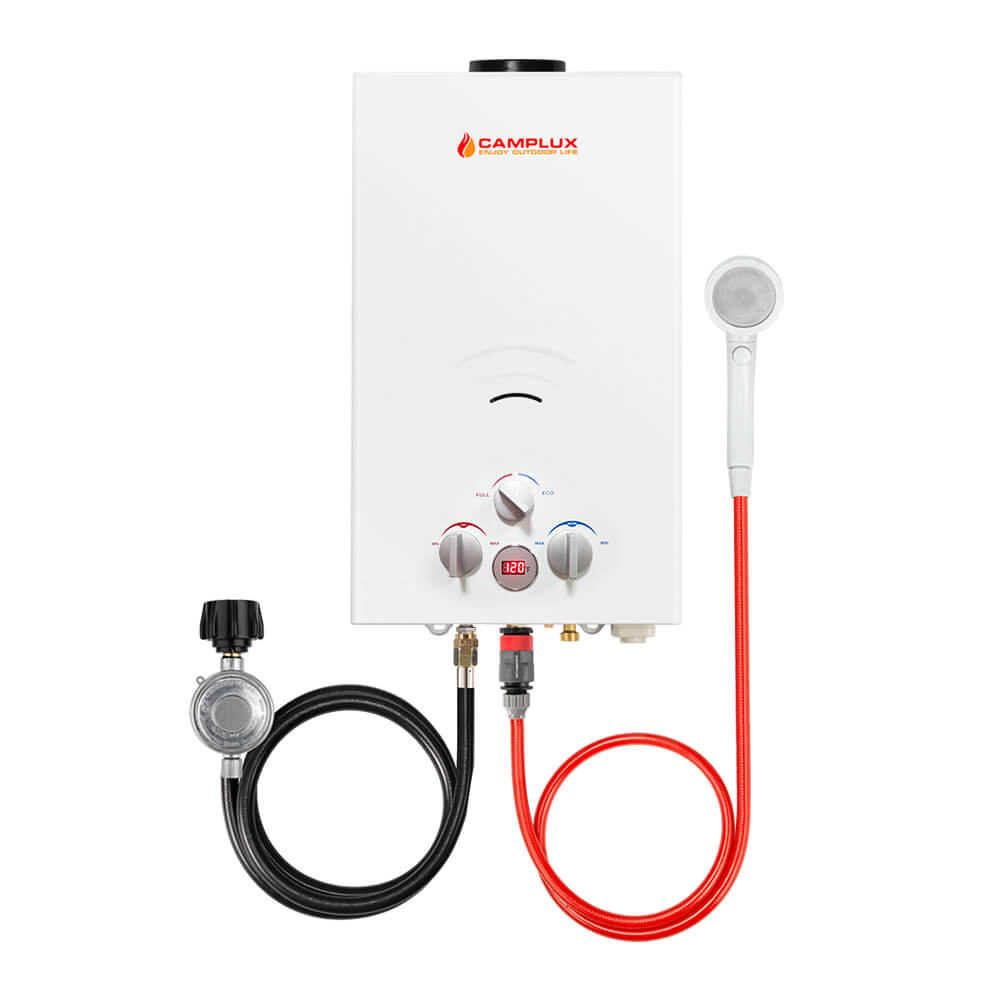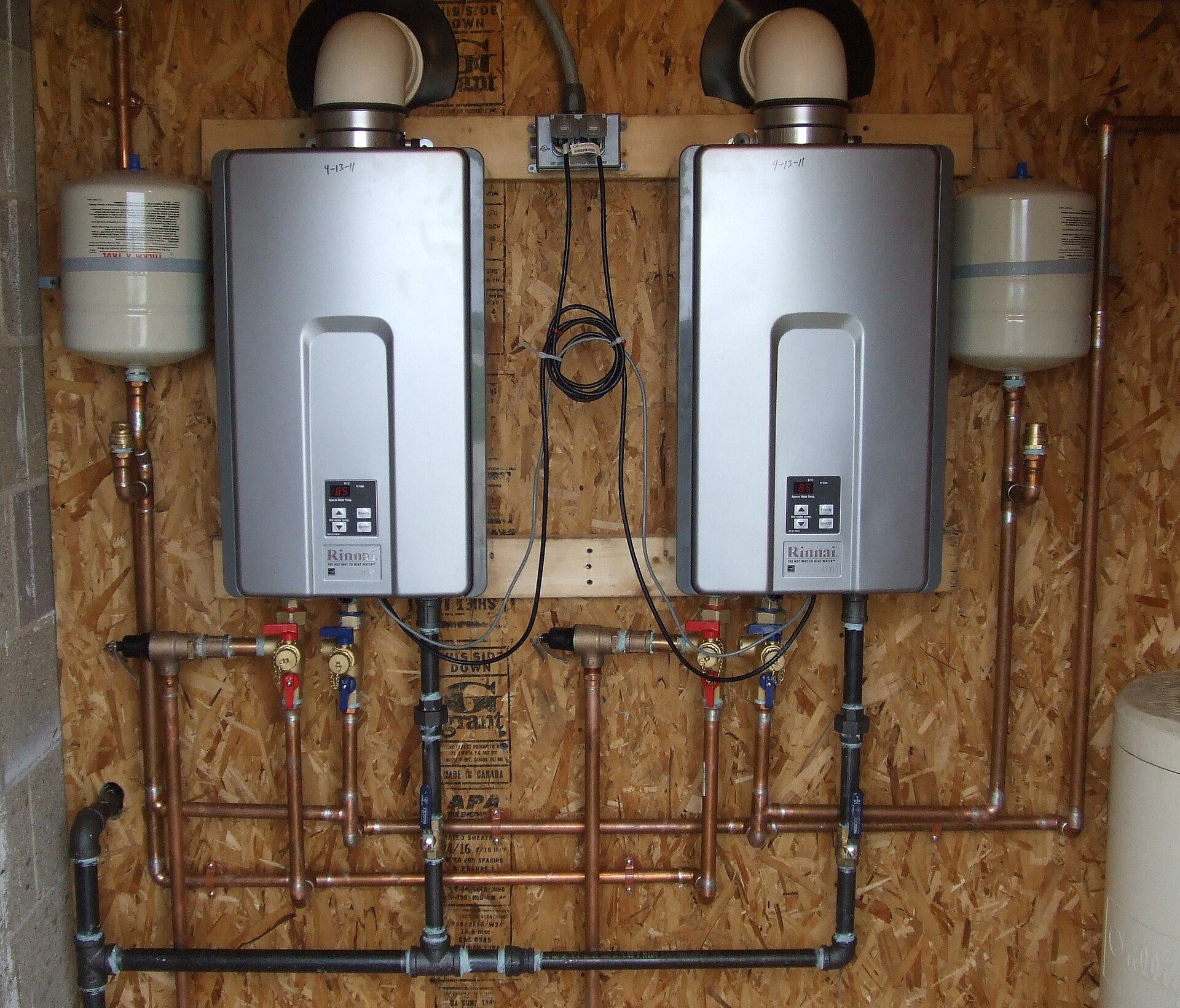Learning About The Advantages Of Continuous-Flow Water Heaters
Learning About The Advantages Of Continuous-Flow Water Heaters
Blog Article
Right here further down you will discover a bunch of professional insight about Pros and Cons of Tankless Water Heater.

In a globe where benefit and performance preponderate, it's no surprise that home owners are continuously looking for smarter means to handle their home's energy intake and convenience. One innovation that has gradually obtained appeal is the tankless water heater. However just what makes these systems attract attention from the conventional tank-based models a lot of us grew up with? Let's dive in and check out the benefits of tankless water heaters, assisting you determine if it's time to make the switch in your home.
Intro
Image this: you step into the shower after a lengthy day, anticipating a comforting cascade of hot water, only to be welcomed by icy beads because the last individual utilized it all up. Audio familiar? Traditional water heaters store a set quantity of warm water, suggesting you're at the grace of that storage tank's supply. Tankless systems, on the other hand, heat water as needed. Say goodbye to going out mid-shower, no more wrestling with routines just to guarantee warm water is readily available.
Understanding Tankless Water Heaters
What Are Tankless Hot Water Heater?
Tankless water heaters, sometimes called on-demand or instant hot water heater, give hot water only as it's required. As opposed to storing gallons of pre-heated water, these systems kick into activity the minute you switch on the tap. Water goes through a warmth exchanger, warming up in real-time, suggesting you obtain a continuous flow of hot water without the demand for a big storage tank resting lazily by.
Exactly how Do They Vary from Standard Systems?
Standard heaters hold a storage tank of warm water, using energy to maintain that tank at a regular temperature. Tankless units get rid of the standing supply, lowering wasted energy and the large impact of a big cyndrical tube. Basically, you're updating from a "accumulation" way of thinking to a "made-to-order" approach.
Common Types of Tankless Units
Tankless water heaters typically are available in two varieties: gas and electric. Gas models tend to provide greater flow rates, ideal for larger homes, while electrical versions often serve smaller homes and are typically much easier to set up. In addition, some systems are created for point-of-use (offering one fixture) while others can take care of the entire home's hot water requirements.
Key Benefits of Tankless Hot Water Heater
Power Performance and Cost Savings
Say goodbye to heating a titan tank's worth of water and maintaining it toasty all the time. Tankless heaters decrease standby power losses, which can lower utility costs. While the preliminary expense could be higher, the long-term cost savings usually validate the investment.
3. Space-Saving Layout
If your home is short on storage, eliminating the large container maximizes beneficial room. Tankless devices are portable and can often be mounted on walls, stashed in corners, or set up in limited energy wardrobes without hogging the whole area.
4. Longer Life-span
A well-kept tankless water heater can outlast its tank-based relative. Typical containers may last 10-15 years, while tankless versions can keep chugging along for 20 years or more, making them a solid financial investment with time.
1. Limitless Hot Water Supply
Ever had to schedule showers so every person gets their reasonable share of hot water? With tankless, that becomes a distant memory. As long as the heater's circulation capacity isn't gone beyond, you can take back-to-back showers without becoming a popsicle.
5. Improved Water Quality
Storing water in a storage tank can sometimes cause sediment build-up or a somewhat "off" taste. With tankless systems, fresh water is heated up right away, decreasing the possibilities of sediment build-up and potentially providing cleaner-tasting water.
Considerations Before Changing
Though the advantages are compelling, it's important to consider a couple of variables before completely committing.
Assessing Your Home's Water Use Patterns
If your family all at once uses multiple components with high hot water need, make certain the unit's circulation rate fulfills your requirements. Knowing your use patterns helps you select the best dimension and type of tankless heating system.
Maintenance and Care Tips
Tankless systems are fairly reduced maintenance, yet they aren't set-it-and-forget-it appliances.
Normal Cleansing and Descaling
Tough water minerals can build up in the warm exchanger, impacting effectiveness. Normal descaling (typically advised yearly) keeps the system going for peak performance.
Yearly Specialist Examinations
A yearly checkup from a professional guarantees minor issues are caught early. They'll evaluate the unit's efficiency, seek leakages, and assist preserve optimal efficiency.
First Financial Investment Expenses
Tankless heating units generally include a greater ahead of time cost. Between the unit itself and possible installment modifications, the initial cost might give you sticker shock. But keep in mind to see it as a long-term financial investment.
Installment Requirements
Depending on your home's infrastructure, you could need additional electric capacity or gas line upgrades. Guarantee you understand the setup requirements and consult with an expert to prevent surprises.
Ensuring Proper Ventilation
For gas versions, appropriate air flow is necessary to securely eliminate exhaust gases. Make certain venting systems are clean and correctly set up to avoid any type of possible safety and security hazards.
Contrasting Different Brands and Versions
Not all tankless hot water heater are produced equal.
Investigating Reliable Makers
Try to find credible brand names with a history of generating quality systems. A reputable maker commonly offers better consumer support and longer warranties.
Setup: DIY or Specialist?
While some property owners cherish dealing with tasks themselves, tankless installation may not be the most effective time to burst out the toolbox.
Advantages and disadvantages of Do It Yourself Installment
A DIY mount could save money, however it features risks. Wrong setup can bring about inefficiency or safety and security issues. If you're handy and have experience, it may be practical-- however wage caution.
Reading Reviews and User Feedback
User testimonials and responses from next-door neighbors or good friends that have gone tankless can offer beneficial insights. Occasionally, real-life experiences can be more telling than marketing brochures.
When to Call a Specialist Plumber
For most, calling a professional makes sure everything's done appropriately. A professional plumbing technician comprehends regional codes, sizing demands, and venting parameters, minimizing the danger of problems.
Making the most of Effectiveness
You have actually invested in a tankless unit-- currently maximize its effectiveness.
Optimum Temperature Settings
The majority of people establish their systems in between 120-140 F. Readjusting the temperature level can boost convenience and financial savings. Experiment to locate a pleasant place that does not lose power.
Coupling With Low-Flow Fixtures
Wish to stretch your unit's capacities? Consider installing low-flow showerheads and taps. They decrease water use, permitting your tankless system to supply a steady stream of warm water without stressing.
Environmental Effect
Tankless water heaters straighten with greener living goals.
Decreased Carbon Impact
By using less power and only heating water as required, tankless systems can reduce your home's carbon impact, reducing your ecological influence.
Saving Natural Resources
Less power usage and less lost hot water convert into less natural deposits being utilized, an environmental win-win.
Who Profits Many from Tankless Heaters?
The appeal of tankless heaters is that they can match a variety of families.
Big Households vs. Single Owners
Large families could enjoy the countless hot water supply, while solitary occupants value the power financial savings from not heating up an entire container for simply a single person's early morning shower.
Home Owners with Limited Space
If your home is short on square video, losing the bulky tank liberates room for various other essentials-- or possibly simply a lot more elbow room.
Eco-Conscious Customers
Going tankless aligns with eco-friendly values, guaranteeing you're not squandering power or resources.
Future Trends in Tankless Hot Water Heater
The globe of home devices is ever-evolving, and tankless hot water heater are no exception.
Advancements in Innovation
R&D is continuously boosting heat exchangers, making units more effective and sturdy. Future models may be also quieter, more compact, and much better fit for differing environments.
Smart Home Combination
Envision readjusting your water heater's temperature using an app or receiving upkeep alerts on your phone. As wise home tech breakthroughs, we'll see even more connectivity and benefit.
Conclusion
Picking a tankless hot water heater is more than just updating your home's hot water system; it's investing in lasting convenience, energy efficiency, and a greener lifestyle. By considering your house's water usage, being mindful of installment demands, and committing to routine maintenance, you can enjoy a stable stream of hot water without the luggage of a large storage tank. As innovation develops, you can anticipate even smarter, extra efficient tankless services that not only make your life simpler yet also benefit the earth.
5 Benefits of Tankless Water Heaters
Save Valuable Space
Since tankless water heaters do not have a massive 40+ gallon tank of water, they are considerably smaller and can fit in more narrow spaces in your home.
If you are working with limited square footage, a tankless water heater will still provide you with the hot water you need while taking up significantly less space in your home. While the exact size of a tankless water heater varies depending on the brand, some are as small as a carry-on suitcase.
Endless Supply of Hot Water
While a traditional water heater preheats and stores your water in the tank, tankless water heaters do not rely on a reservoir system.
This means that they do not run out of hot water like traditional water heaters since they make hot water as needed. Traditional water heaters need to stop and reheat water when the tank inevitably runs out, but tankless water heaters do not have this issue.
Provide Warm Water On-Demand
As mentioned above, tankless water heaters do not preheat a certain amount of water and then store it in a massive tank to be used later. An advantage of installing a tankless water heater includes water being heated instantly whenever you turn on the faucet.
When you turn on the water, it will travel through a heat exchanger in the unit and be heated with either an electric element or a natural gas burner. Gone are the days of having to ration out your hot water to make sure that you do not run out.
Longer Life Cycle
Not only do tankless water heaters provide an endless supply of hot water for your home whenever you want it, but these units tend to have a longer lifespan than water heaters with tanks.
Tanked water heaters have an average lifespan of around 10 years, as the tank is prone to corrosion, leading to serious issues. In comparison, tankless water heaters can last for around 15 to 20 years with the proper maintenance and tune-ups.
Energy Efficient
Compared to traditional water heaters, tankless water heaters are a more energy-efficient water heating option for your home. Tank water heaters must heat and reheat the water stored in the tank throughout the day, even if you are not home.
This energy use adds up over time, leading to an increase in your energy bills and added strain on your unit. A benefit of buying a tankless water heater includes saving money since it only operates when you turn on the hot water. Since it only heats up as needed, this can decrease your energy bills and save you money in the long run.
https://callrandazzo.com/blog/5-benefits-of-tankless-water-heaters/

We had been made aware of that editorial about from a good friend on a different web property. So long as you enjoyed our blog post please don't forget to pass it around. Thank you for taking the time to read it.
Book An Appointment Report this page